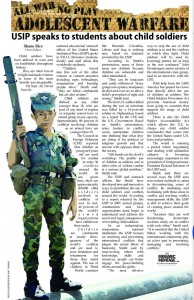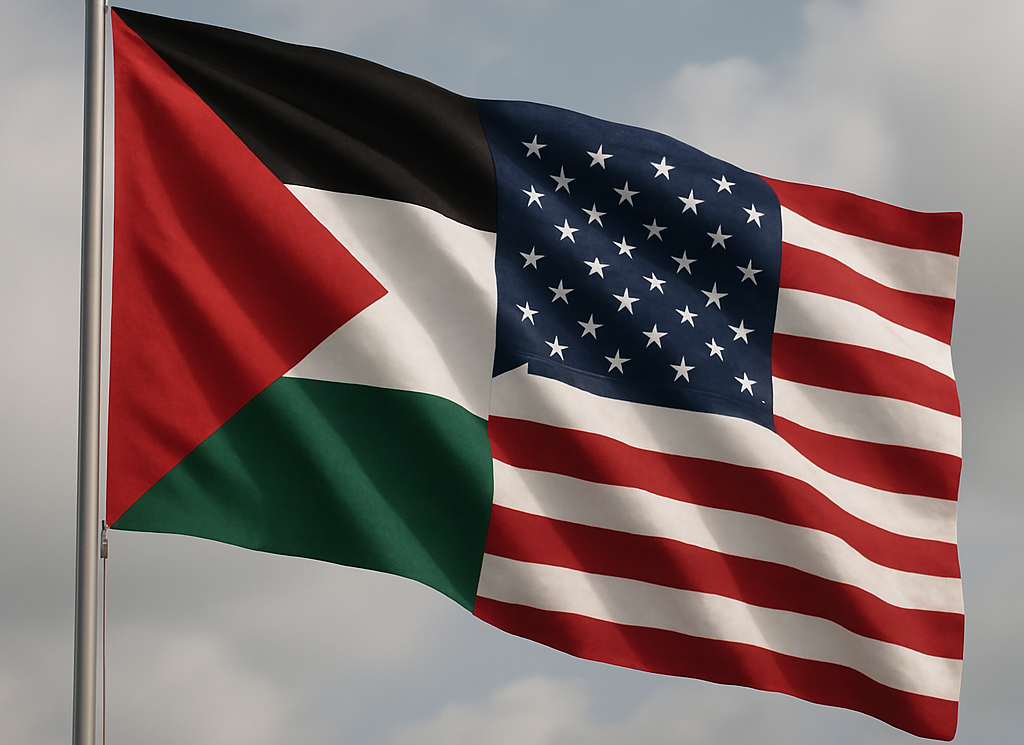USIP speaks to students about child soldiersBy: Shane Rice

– Asst. News Editor –
Child soldiers have been utilized in wars and on battlefields throughout history.
They are often forced to fight and made witness to some of the most horrific acts imaginable.
On Sept. 22, David S m i t h , national educational outreach officer of the United States Institute of Peace (USIP), spoke to STLCC-Meramec students, faculty and staff about this worldwide epidemic.
“Children forced into this sort of life often witness or commit atrocities including rape, beheadings,
amputations and burning people alive,” Smith said. “They are lethal combatants but are also victims.”
Child soldiers are defined as any child younger than 18, who are part of any kind of regular or irregular armed force or armed group in any capacity. Approximately 80 percent of conflicts involving children as an armed force are younger than 15.
The Council on Foreign Relations (CFR) reported that children as young as 8 years old are used for combat in some 30 conf l i c t s around the world. At any given time, there are approximately 300,000 child s o l d i e r s involved in conflicts of war. In fact, 40 percent of the world’s a r m e d organizations have children in their ranks.
C h i l d r e n are combatants in nearly three quarters of the world’s conflicts and are used to pose hesitation and refrainment for those they stand against. The use of children in Third World countries like Burundi, Colombia, Liberia and Iraq is nothing new, based on statistics provided by the USIP.
According to Smith’s presentation, many of these areas use children because children are vulnerable and often intimidated.
“They can be tenacious and easily influenced. Many groups use opiates, marijuana, alcohol and even sex to alter a child’s perception of right and wrong,” Smith said.
The first U.S. soldier killed during the war on terrorism was killed by a 14-year-old soldier in Afghanistan, based on a report by the CFR and the U.S. Government. Based on Smith’s presentation, army leaders in conflict zones manipulate children into thinking that what they are doing is for political or religious growth and that anyone who opposes them is the enemy.
“Idle hands are the devil’s workshop. The prolific use of children as soldiers and in other roles of violent combat is a serious global problem,” Smith said.
The USIP and outreach officers like Smith have developed new and innovative ways to demobilize the use of child soldiers and conflicts around the world. According to a report released by the USIP in 2007, armed groups, communities and local organizations must begin to understand and address the social and legal consequences of recruiting child soldiers.
As an independent, nonpartisan, national institution, the USIP focuses on resolving and preventing international conflicts that plague the moral fibers of humanity. Smith said by empowering others with knowledge, skills and resources, people can better engage the peace-building efforts around the globe.
“The most effective way to stop the use of child soldiers is to end the conflicts in which they fight. Child soldiers will be used by [warring] parties for as long as the war continues,” John Prendergast, senior advisor of the international crisis group, said in an interview with the CFR.
With help from the USIP, America has passed two laws that directly affect the use of children as soldiers. The Child Soldiers Prevention Act prevents American money from going to countries that support the usage of child soldiers. There is also the Child Soldier Accountability Act which allows the U.S. to charge any child soldier commander that comes into the United States under U.S. laws and penalties.
The world is entering a period where negotiating and dealing with unfamiliar cultures is becoming increasingly important to the promotion of foreign interests, President Richard Solomon of the USIP said. Smith said there are several ways the USIP uses non-violent methods to assist in deconstructing zones of conflict. By mediating and facilitating with those areas in conflict and teaching conflict management skills, the USIP is able to achieve their goals of creating peace around the world.
“Societies that are well functioning, democratic societies rarely are in conflict with each other,” Smith said. “It is essential that the United States, working with the international community, play an active part in preventing, managing and resolving conflicts.”










